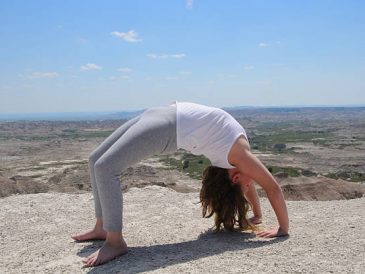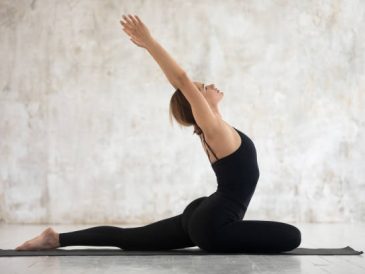Yoga, with its roots tracing back to ancient India, is often perceived as a timeless practice, a serene path to physical, mental, and spiritual well-being. Its traditional aspects, including postures (asanas), breathing techniques (pranayama), and meditation, have been preserved and passed down through generations. However, in the modern era, yoga is not immune to change. Rather, it is evolving to adapt to the diverse and dynamic needs of contemporary society.
The notion of yoga as an unchanging, timeless practice is a romanticized myth. Throughout history, yoga has continually evolved in response to shifting cultural, social, and environmental contexts. Its evolution is not a betrayal of tradition but rather a testament to its resilience and relevance. Today, as the world faces unprecedented challenges such as stress, sedentary lifestyles, and mental health issues, yoga is undergoing a transformative shift to meet the contemporary needs of individuals and communities.
One of the most prominent ways yoga is changing is in its accessibility. Traditionally, yoga was often practiced in ashrams or by gurus in remote settings, accessible to only a select few. However, in today’s digital age, yoga has transcended geographical boundaries and socioeconomic barriers. Online platforms, mobile apps, and social media have democratized yoga, making it accessible to people of all ages, backgrounds, and abilities. Virtual classes and tutorials cater to busy professionals, stay-at-home parents, and individuals with limited mobility, bringing the benefits of yoga directly into people’s homes.
Furthermore, the diversity of yoga offerings has expanded exponentially. While classical forms of yoga, such as Hatha, Ashtanga, and Kundalini, remain popular, new variations and hybrid practices have emerged to cater to different preferences and needs. Power yoga, hot yoga, aerial yoga, and even yoga fusion classes combining elements of dance, martial arts, and strength training are gaining popularity. These variations appeal to individuals seeking physical fitness, stress relief, mindfulness, or a sense of community, reflecting the multifaceted nature of modern lifestyles.
Moreover, yoga is increasingly recognized as a therapeutic tool for addressing mental health issues such as anxiety, depression, and PTSD. Research studies have demonstrated the efficacy of yoga in reducing stress, improving mood, and enhancing overall well-being. As a result, yoga is being integrated into clinical settings, schools, workplaces, and rehabilitation centers as a complementary treatment modality. Trauma-informed yoga, restorative yoga, and yoga for specific populations such as seniors, veterans, and survivors of domestic violence are examples of how yoga is evolving to meet the diverse needs of individuals coping with mental health challenges.
Another significant aspect of yoga’s evolution is its intersection with technology and innovation. Wearable devices, smart mats, biofeedback tools, and virtual reality experiences are revolutionizing the way yoga is practiced and experienced. These technological advancements offer real-time feedback, personalized guidance, and immersive environments, enhancing the effectiveness and engagement of yoga practice. Furthermore, digital platforms and social networks facilitate global collaboration, knowledge sharing, and community building among yoga practitioners, teachers, and enthusiasts worldwide.
In addition to individual well-being, yoga is increasingly recognized as a catalyst for social change and collective transformation. Socially engaged yoga initiatives are addressing issues such as environmental sustainability, social justice, and cultural preservation. Yoga festivals, retreats, and conferences serve as platforms for dialogue, activism, and solidarity, fostering connections and collaborations beyond the yoga mat. Furthermore, yoga teacher training programs are integrating modules on diversity, equity, and inclusion to promote accessibility, representation, and empowerment within the yoga community.
However, amidst the evolution and innovation, it is essential to acknowledge the challenges and controversies that accompany yoga’s contemporary transformation. Commercialization, cultural appropriation, and commodification are significant concerns as yoga becomes a global industry worth billions of dollars. The appropriation of sacred symbols, rituals, and practices without proper understanding or respect for their cultural origins can perpetuate stereotypes, erode authenticity, and undermine the integrity of yoga as a holistic discipline.
Furthermore, the emphasis on physical aesthetics, performance, and achievement in modern yoga culture can perpetuate unrealistic standards and exacerbate feelings of inadequacy, comparison, and competition among practitioners. The pressure to attain the perfect pose or the ideal body can detract from the deeper dimensions of yoga, such as self-awareness, compassion, and acceptance. Therefore, it is crucial to maintain a balance between innovation and integrity, honoring the essence of yoga while embracing its evolution to meet contemporary needs.
Yoga is not a static or timeless practice but a dynamic and evolving tradition that continues to adapt to the changing needs of individuals and society. From its ancient origins to its contemporary manifestations, yoga embodies resilience, diversity, and transformation. As we navigate the complexities of the modern world, yoga offers a timeless yet ever-changing path to holistic well-being, inviting us to explore the depths of our being and the interconnectedness of all existence.
Through accessibility, diversity, therapeutic applications, technological integration, and social engagement, yoga is evolving to empower individuals, communities, and humanity as a whole. By honoring its roots, embracing innovation, and fostering inclusivity, yoga has the potential to transcend boundaries, unite diverse voices, and catalyze positive change in the world. As we embark on this transformative journey, let us remember that yoga is not just a practice; it is a way of life—a journey of self-discovery, growth, and awakening that unfolds with each breath, posture, and moment of presence.




